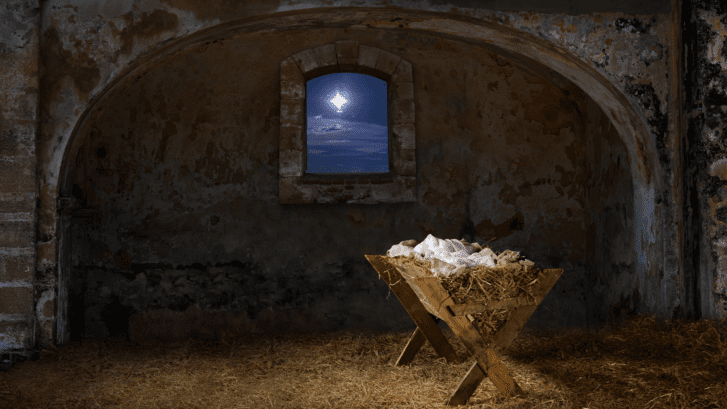In 1989 a group of about one hundred Christians and a group of equal number of Muslims faced each other in a city park in Berlin, Germany. The meeting was called a prayer confrontation, the result of a challenge issued by the leader of a Turkish mosque. The confrontation lasted for about two hours, and according to the news article nothing visible happened. Fire did not rain down from heaven, the earth did not open up.
One wonders what anyone expected to happen or what the participants prayed for. One wonders what God felt about the entire episode. My guess is that He was either amused or grieved by the absurdity of it all. If religious people are going to have a confrontation, I suppose a prayer meeting is the best kind. It is certainly better than a gunfight, but there is something basically wrong with the idea of a prayer confrontation. It presupposes that God is for one side and against the other side.
Our Gospel reading today clearly contradicts that very notion. It tells a much loved story of visitors who came from the East and brought gifts to the baby Jesus. The traditional names for these strangers are Wise Men. We know nothing about them, the only thing we know for sure is they were outsiders. They were not Jews, not Christians- the Church did not exist yet and there would not be any Muslims for another six hundred years. Yet, somehow, God communicated with these outsiders and made Himself known to them.
The point of the story is that nobody has exclusive claim on God, not even those of us who call ourselves Christians. Nothing is more dangerous than the assumption that God is on our side and against everyone else. When religious groups think this way their enemies become God’s enemies and whatever they do to the other group has the sanction of divine approval. As we all know, some of the bloodiest wars in history were founded on the basis of this assumption.
This simple story stands against all such insanity. Of all the gospels, Matthew is the only one that tells it, and this is strange because his gospel is the most Jewish. It is strange that he tells us about these pagans, these outsiders who come to worship the Messiah who was predicted by the Jewish prophets. Perhaps, he did this because he himself was looked upon as an outsider by the Jewish people, he collected taxes for the Romans. Perhaps, he needed to tell this story, how everyone was welcomed at the stable.
The story begins with a star. That is how God chose to reveal Himself to these three seekers after the truth. But, it ends with a Child. He is weak and dependent, someone had to take care of Him or else He could not survive. What an incredible contrast. The God who made Himself known through a star also made Himself known through a helpless Child.
We have come to the end of our Christmas story, practically speaking, it was done all so wrong. Look at the first group to come to the stable-shepherds, the lowest on the social scale, despised by all and looked down upon as thugs and vagabonds. They could not read or write, yet they were the first to hear the good news of the Birth of Christ. Then, three pagan outsiders not part of the chosen people.
So what does this tell us, what message does it give? It tells us that no matter who or what we are we belong at the stable.
Have you ever been rejected and told you do not measure up? Then you belong at the stable. Have you ever been condemned by society or even by your church? Then you belong at the stable.
Rich or poor, sinner or saint, we all belong at the stable.


